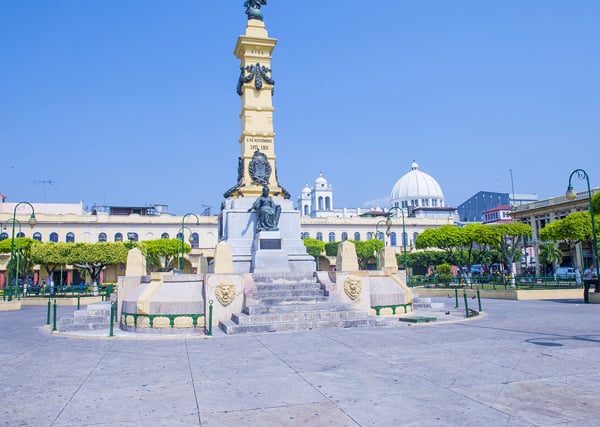Retire in San Salvador Guide
Summary: If San Salvador is on your retirement radar, our detailed Retire in San Salvador Guide is your go-to resource. Delve into the crucial aspects of life here, including living costs, climate, housing options, healthcare services, and residency procedures. We also explore the city's social dynamics, volunteering scenes, transportation, and how walkable its neighborhoods are.

San Salvador, the capital city of El Salvador, is becoming an increasingly popular destination for international retirees. The city offers a unique blend of urban sophistication and traditional charm, with a cost of living that is significantly lower than many other retirement destinations. However, like any foreign country, retiring in San Salvador comes with its own set of challenges, from navigating the healthcare system to learning the local language. In this article, we will explore what it's like to retire in San Salvador, including the cost of living, climate, healthcare, and more.
Affordable Living
One of the biggest draws for retirees in San Salvador is the low cost of living. Housing, food, and healthcare are all significantly cheaper than in North America or Europe. For example, a comfortable two-bedroom apartment in a good neighborhood can be rented for as little as $500 per month. Eating out is also affordable, with a meal at a mid-range restaurant costing around $10. However, it's important to note that imported goods can be more expensive due to import taxes.
Tropical Climate
San Salvador enjoys a tropical climate, with warm temperatures year-round. The city experiences a wet season from May to October, and a dry season from November to April. Despite the humidity during the wet season, many retirees enjoy the lush greenery and vibrant flowers that come with the rains.
Healthcare Options
San Salvador boasts several high-quality private hospitals, with many doctors speaking English. The cost of healthcare is also significantly lower than in the U.S., making it an attractive option for retirees. However, it's important to note that while the public healthcare system is available to residents, it can be crowded and under-resourced, so many retirees opt for private health insurance instead.
Residency for Retirees
El Salvador offers a specific residency program for retirees, known as the Pensionado Program. To qualify, retirees must have a monthly income of at least $1,000 from a stable source such as a pension or social security. This program offers several benefits, including the ability to import household goods tax-free.
Recreational Activities and Dining
San Salvador offers a wealth of recreational activities, from exploring the historic city center to hiking in the nearby El Boquerón National Park. The city is also home to a vibrant dining scene, with popular restaurants such as Los Alambiques and La Pampa Argentina offering a range of local and international cuisine.
Language Learning
While Spanish is the official language of El Salvador, English is widely spoken in San Salvador, particularly in the tourism and hospitality sectors. However, retirees looking to immerse themselves in the local culture may wish to take Spanish lessons. The ESEN University Language Center offers a range of Spanish courses for all levels.
Local Culture and Markets
The locals in San Salvador are known for their warmth and hospitality, making it easy for retirees to feel at home. The city also hosts several weekly markets, such as the Mercado Ex-Cuartel, where retirees can buy fresh produce, local crafts, and more.
Volunteer Opportunities
For retirees looking to give back to the community, there are several volunteer opportunities in San Salvador. Organizations such as TECHO and Habitat for Humanity El Salvador welcome international volunteers to help with their housing projects.
Housing and Neighborhoods
Most retirees in San Salvador opt for apartments or condos in the city's safer neighborhoods, such as Escalón, San Benito, and Santa Elena. These areas offer a range of amenities, including supermarkets, restaurants, and parks, making them ideal for retirees.
Transportation
San Salvador has a comprehensive public transportation system, including buses and taxis. However, many retirees choose to rent or buy a car for convenience. The city is also quite walkable, particularly in the more tourist-friendly areas.
About the Author
 Betsy Burlingame is the Founder and President of Expat Exchange and is one of the Founders of Digital Nomad Exchange. She launched Expat Exchange in 1997 as her Master's thesis project at NYU. Prior to Expat Exchange, Betsy worked at AT&T in International
and Mass Market Marketing. She graduated from Ohio Wesleyan University
with a BA in International Business and German.
Betsy Burlingame is the Founder and President of Expat Exchange and is one of the Founders of Digital Nomad Exchange. She launched Expat Exchange in 1997 as her Master's thesis project at NYU. Prior to Expat Exchange, Betsy worked at AT&T in International
and Mass Market Marketing. She graduated from Ohio Wesleyan University
with a BA in International Business and German.
Some of Betsy's articles include 12 Best Places to Live in Portugal, 7 Best Places to Live in Panama and 12 Things to Know Before Moving to the Dominican Republic. Betsy loves to travel and spend time with her family. Connect with Betsy on LinkedIn.
Additional Information:




